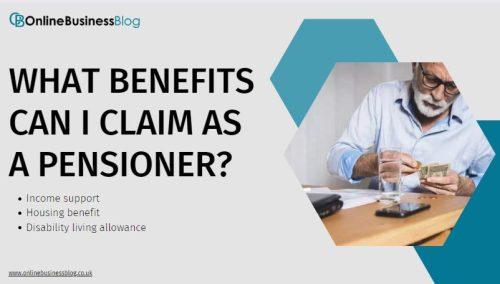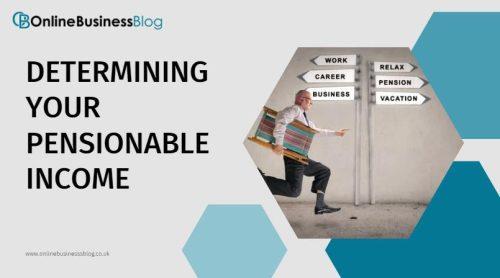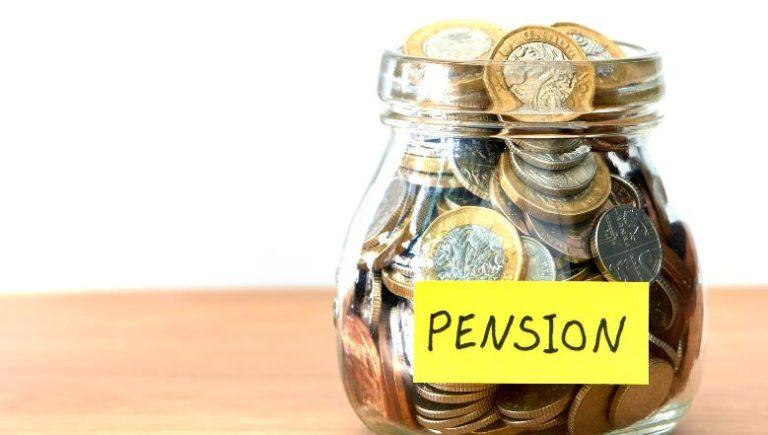Post Contents
For a lot of people, retirement is a time of peace and tranquility. You can finally relax, take care of yourself and enjoy your life without the stresses of work. Unfortunately, this is not always the case for everyone. In fact, as people get older, they may find themselves in a position where they no longer have a job but still need to receive pension payments. This is where pension rights come in; they give you specific benefits that you may be able to claim. In this blog post, we will explore what pensions are, what benefits you may be able to claim as a pensioner and some tips on how to go about claiming them.
How to claim your pension?
If you are aged 65 or over and have been contributing to a pension scheme for at least 10 years, you may be able to claim a variety of benefits.

These include:
• A basic state pension: This is the most basic form of pension and is payable regardless of how much money you have saved for your retirement. You will receive £115 per week from the government.
• Additional state pension: If you have paid in more than £150 per week into your pension scheme, you will be entitled to an additional state pension of £162.50 per week. This is higher than the basic state pension, so it’s worth saving into your pension as much as possible.
• Dormant personal pensions: If you have not made any contributions to your personal pension account for at least 6 months, you can start receiving interest on any money that’s been saved. This interest can add up fast, so it’s important to keep your account active.
• Pension credit: If you are working and earning below a certain income level, part of your salary can be automatically invested into a private pension plan which will give you a contribution towards your retirement. This is known as Pension Credit.
What benefits can I claim as a pensioner?
A pension is a type of social security payment that is usually received by retired or disabled people. There are a number of different types of pensions, including workers’ compensation and national insurance retirement pensions. Pension benefits can include payments made directly to the person, or to their spouse or children if they are dependent on them. They may also include paid holiday, healthcare and other benefits.

Pensioners can claim a range of benefits as part of their pension, including:
Income support: This provides a basic level of income to help pensioners live comfortably while they are unable to work. The amount provided varies depending on the age and financial situation of the pensioner, but it can typically be around £140 per week.
Housing benefit: This provides financial assistance towards rent or mortgage costs if the pensioner needs it in order to live independently in their own home. It can provide up to £14,000 per year, depending on the individual’s income and circumstances.
Disability living allowance: This is an annual benefit that helps pensioners with extra costs associated with disability, such as medication and specialist care. The amount provided varies based on the individual’s income and how severe their disability is.
Determining your pensionable income
If you are aged 65 or over and have an income from a pension or an annuity, you may be able to claim various benefits. These benefits vary depending on your age, income and marital status. In general, the more income you have, the more benefits you can claim.

You may be able to claim pension credit based on your pensionable income. Pension credit is a government benefit that helps low-income people who are retired or drawing retirement benefits pay their bills. You may also be able to claim housing benefit or council tax benefit based on your pensionable income.
Pensions after retirement
If you have been working for a certain number of years, you may be able to claim a pension. The amount of your pension will depend on the type of pension scheme that you are in. Some common types of pension schemes are:
- Contributory pensions
- Inland Revenue pension schemes
- National Insurance pension schemes
- Pensions from private companies
- Self employed pensions
When claiming your pension, it is important to know which benefits you are eligible to receive.
These can include:
- State retirement age (SRA) payments
- Basic state pension
- Additional state pension (ASP)
- Partial state retirement allowance (PSRA) – Income related ESA payments – State Pension Credit (SPC) – Carer’s allowance – Bereavement benefit – Widower’s allowance
How to rollover your pension into an annuity?
If you have a pension, there are many benefits you can claim as a pensioner. Here we’ll explain how to rollover your pension into an annuity. This will give you the best retirement income possible.
To rollover your pension, first check if your scheme allows it. If it does, contact your pension provider and ask about rolling over your pension into an annuity. They will need to send you a form to complete.
Once your provider has sent you the form, you will need to fill it in and send it back to them. You will also need to provide proof of your current pension entitlement, such as an PDS statement or payslip.
Your provider may charge a fee for rolling over your pension into an annuity, so be sure to check their rates before doing anything. Once they have received all the information they need, they will begin the process of arranging an annuity for you. This could take up to six months, so be patient!
What to do if you can’t qualify for a pension?
If you are eligible for a state pension, you may be able to claim other benefits such as free bus travel, discounted shopping and reductions in your council tax. You should also contact your local social services department to find out about any special schemes available to older people.
Conclusion
As a pensioner, you may be wondering if there are any benefits to claiming social security as a pensioner. The answer is yes, there are a number of advantages that you can gain as a pensioner. One of the main benefits is that social security payments are exempt from income tax. Additionally, social security payments tend to be higher than other forms of income, so they can provide a good level of financial stability in retirement. If you want to claim your pension entitlement and take advantage of all the benefits it has to offer, speak to an adviser about your options.


